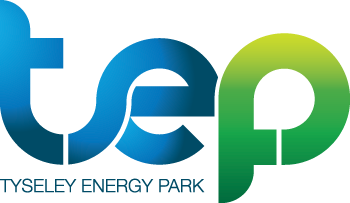Poor air quality is linked to health problems such as strokes, heart disease, lung cancer, respiratory disease and increases the risk of respiratory problems that can be fatal for Coronavirus patients. Furthermore, recent evidence has shown that the areas with the poorest air quality are seeing the highest levels of fatalities.
The latest evidence shows that the levels of nitrogen dioxide (NO2), an air pollutant produced as a result of road traffic has reduced since the COVID-19 lockdown was introduced. However, this week has seen vehicle traffic increasing as workers who are not able to work from home are encouraged to return to their physical workplaces and avoid public transport where possible.
David Horsfall, Director for Tyseley Energy Park (TEP) explains that whilst progress on TEP has been frustrated by COVID-19 over recent weeks it has not been entirely constrained: “like everyone, we are adapting to the ‘new normal’ and we must not lose sight of the battle against poor air quality and climate change. If we are to bounce back from COVID-19 and the economic crisis that may follow we must start developing a green recovery strategy that brings everyone along.
“Society simply cannot afford to return to a pre-pandemic ‘business as usual’ scenario, we must work together to address climate change and pollution levels, covering everything from public sector procurement and big business decisions down to the day to day choices householders make about their travel and waste.
“In the short term we should be changing the way we travel to work, using more public transport and switching to low and zero carbon fuels. It is great to hear the recent announcement regarding the plan to bring 400 Hydrogen busses in to the City, we need more initiatives like this to make a real change. We should re-evaluate the way we work, staggered shift patterns to reduce rush hour traffic with more people working from home if they can. In parallel, TEP and its partners are developing solutions that will combine multiple transport services together, harnessing innovation in transportation, new forms of energy and energy systems to support reductions in carbon emissions and promoting a new way of how our cities, towns or regions operate.”
During these unprecedented times, TEP will continue to work with their partners to develop innovative infrastructure and technology solutions to deliver renewable heat and power, energy storage solutions, clean transport fuels, and advanced waste processing. Through their collaborations, TEP will be supporting the city of Birmingham’s strategy to introduce a clean air zone and meet net zero decarbonisation targets by 2030.
For further information please visit www.tyseleyenergy.co.uk

